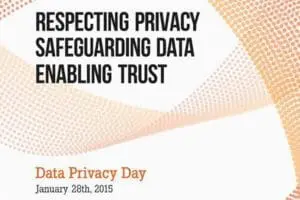“Data privacy is everyone’s responsibility.” It’s a phrase used frequently here at DQC—and that’s because we believe it. Everyone who has access to student data, including students themselves, has a responsibility to use them in the best interest of the student, which includes keeping them safe.
In honor of Data Privacy Day, we’ve compiled a list of resources for everyone with a stake in education to gain knowledge about their role in safeguarding student data.
Students
Students of all ages should be aware of the value of data privacy and security.
- Talk with kids about digital security. Check out some cyber security resources here.
Parents
Ask questions! Know who is using your child’s data and why.
- Not sure what you should be asking? Read: What Every Parent Should Be Asking about Education Data and Privacy.
- Decode the jargon. Privacy regulations can be a maze of legal and technical language. Parent blogger Olga Kaplan breaks down student data privacy topics for a general audience.
- Make sure you are getting access to the information you need. States should be providing parents with understandable, easy-to-find information on your school.
Teachers
Transparency and trust are key when it comes to effective classroom data use.
- Teachers should communicate which apps or technology they are using with parents as well as their administrators. Learn about DQC’s recommendations for schools to clearly communicate with parents about the service providers that they share student data with.
- Ensure parents are getting the value of data. Read insights from DQC Vice President of Policy and Advocacy Paige Kowalski on rethinking the parent-teacher conference.
- Share data with students, so they can be proud of the progress they’re making. Check out how this Washington, DC, school is doing it.
Administrators
Creating a culture of effective education data use throughout the school is critical—from infrastructure security to knowing the rules and regulations.
- Ensure all district staff knows the rules of the road on student data privacy.
- Engage parents and families. Check out the parent sessions held by a Baltimore district on how to access student data from home.
Policymakers
Policymakers can advocate for policies that ensure safe, effective data use by everyone in the education community.
- The inclusion of data literacy in teacher preparation and licensure policies ensures that teachers know how to ensure they are protecting student information when utilizing data.
- For vendors, advocating for participation in responsible data use pledges, like the Student Privacy Pledge, is a good step toward comprehensive privacy protection.
- Keep up with the times. DQC has created practical recommendations for policymakers as they prioritize the safeguarding of student data and continuously review and update their data privacy policies and practices to address changes in technology.


